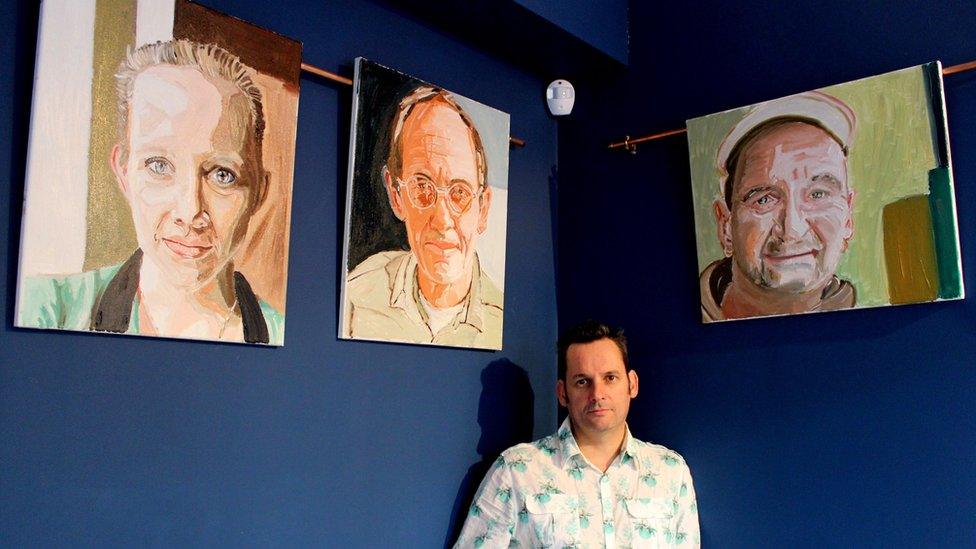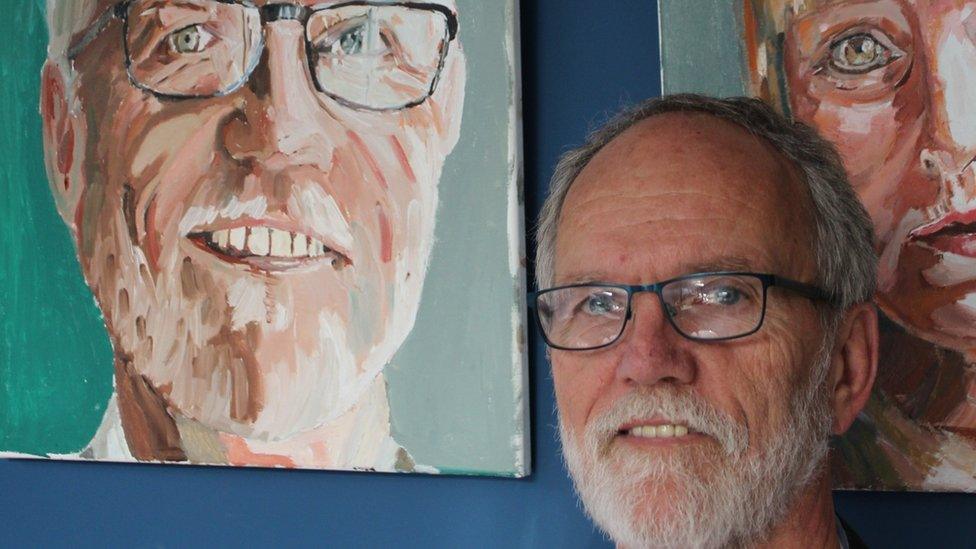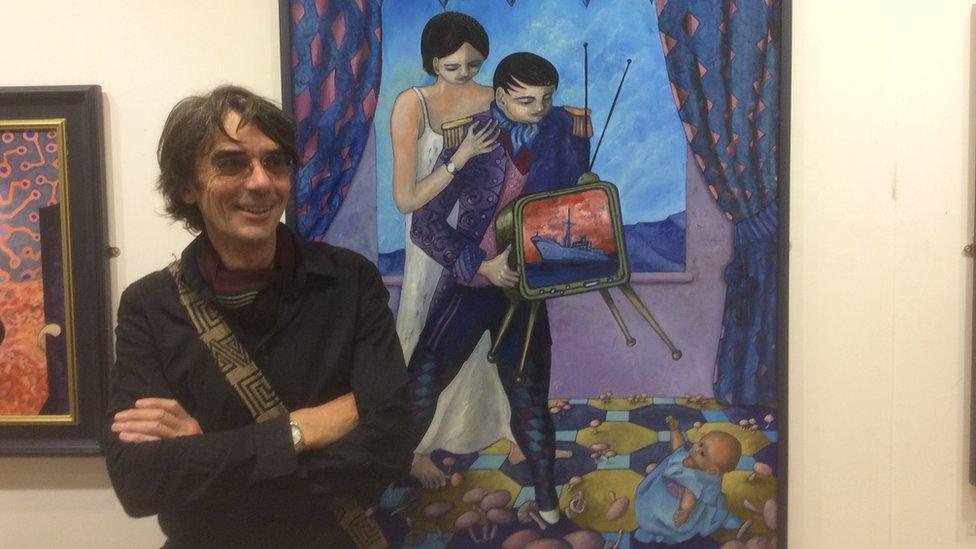Swansea PTSD sufferer to hold debut art exhibition
- Published

Seamas Johnston and some of his works
Three months ago, 49-year-old Seamas Johnston had never picked up a paintbrush - now he is holding his debut art exhibition.
His story is all the more remarkable as, at the same time as learning to paint, he has been battling post-traumatic stress disorder (PTSD).
Mr Johnston, who has lived in Swansea for the past 18 years, believes his PTSD stems from disturbing events he witnessed during his childhood in Derry, Northern Ireland, at the height of the Troubles.
However, his condition was only formally diagnosed this year after his wife, Emma Cownie, began suffering similar symptoms following a car crash.
Ms Cownie, an established local artist, found her art helped alleviate her stress and encouraged him to take up the hobby.
Mr Johnston said: "Through photography and writing I always felt I had an artistic and creative bent, but one of the reasons I never painted was a fear of failure. And my fear of failure was acute - a symptom of PTSD."
Since his diagnosis, Mr Johnston has been undergoing Eye Movement Desensitization and Reprocessing (EMDR) therapy, whereby lights and physical stimuli are used to break the mind's association between the troubling recurring images it has experienced and the negative emotions they provoke.

Brynmill Coffee House owner Rickey Miller standing by his portrait done by Seamus Johnston
But for Mr Johnston, overcoming his crippling lack of self-esteem through art has played an equally large part in his recovery.
"It was all about getting over the confidence problem and the fear that I had too much to learn. But gradually, with each painting, that inherent fear of failure has started to evaporate," he said.
"It was only seeing PTSD symptoms in Emma that I could come to terms with my own condition. There is such a huge denial that goes with this condition; it's a coping mechanism that helps at the time of trauma, but which gets in the way of getting better years later."
In three months he has painted more than 30 portraits, which are on display this weekend at the Brynmill Coffee House in Swansea.
If successful, he hopes to put together a second exhibition in the near future, this time focusing on subjects who have had to battle against addiction and mental health problems, as well as those who society have shunned for various reasons.
"Something creative such as art can and does sustain therapeutic recovery for people with PTSD. In a way, what has happened to me is a message of hope to others.
"Equally it was EMDR that helped me realise this potential I never realised I had."
- Published6 August 2016

- Published10 May 2016

- Published26 April 2016
